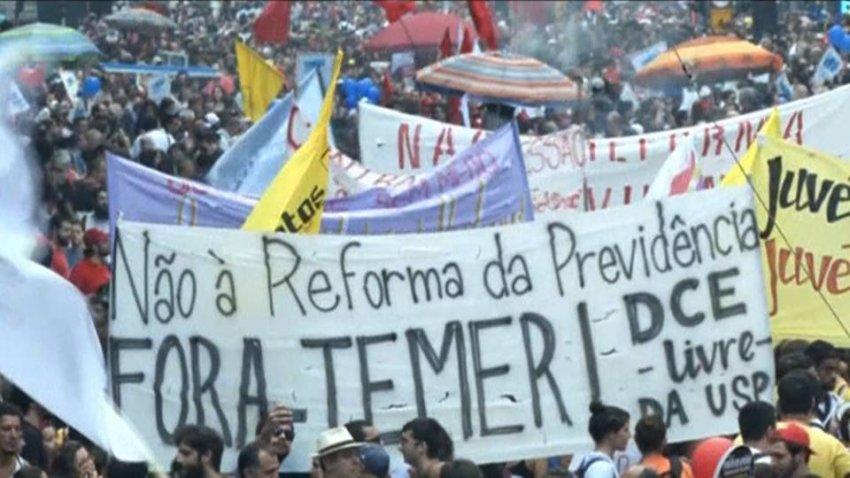
More than 35 million people in Brazil launched one of biggest general strikes in the country’s history against President Michel Temer’s neoliberal reforms on April 28, bringing the country to a standstill.
The strike was largely organised by Unified Workers Central (CUT), the largest union federation in Latin America. It was backed by the Workers Party (PT) of Dilma Rousseff, the elected president overthrown in an institutional coup last year.
Dozens of other unions, grassroots groups teachers, church leaders and civil servants also threw their support behind the strike.
“It is going to be the biggest strike in the history of Brazil,” said Paulo Pereira da Silva, president of trade union Forca Sindical.
“The idea is not making an action, but get people to the streets and stop all production and services; transform cities into ghost towns" said Vera Paoloni, from the Single Confederation of Workers in the state of Para.
Across Brazil, there were many reports of strikers clashing with police, who sought to disperse large crowds with tear gas. In many places, people were setting up road blockades and burning tires in the streets. Protesting the unelected government and its neoliberal labour reforms and austerity programs, many held signs declaring “Fora Temer!” (Temer Out!).
[Abridged from TeleSUR English.]